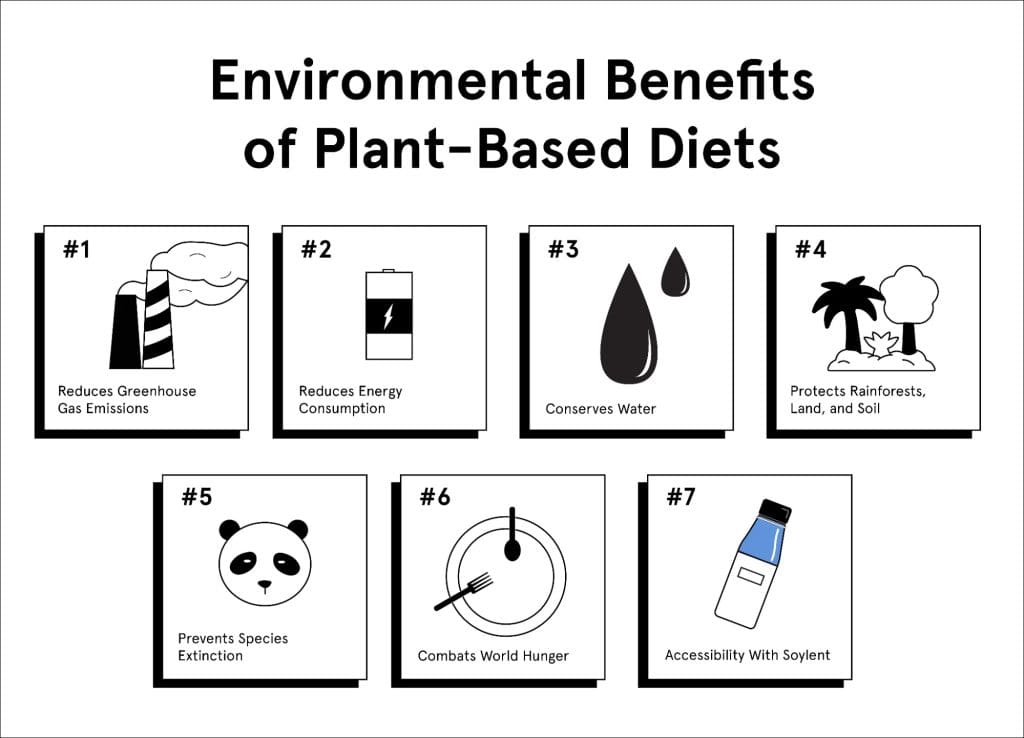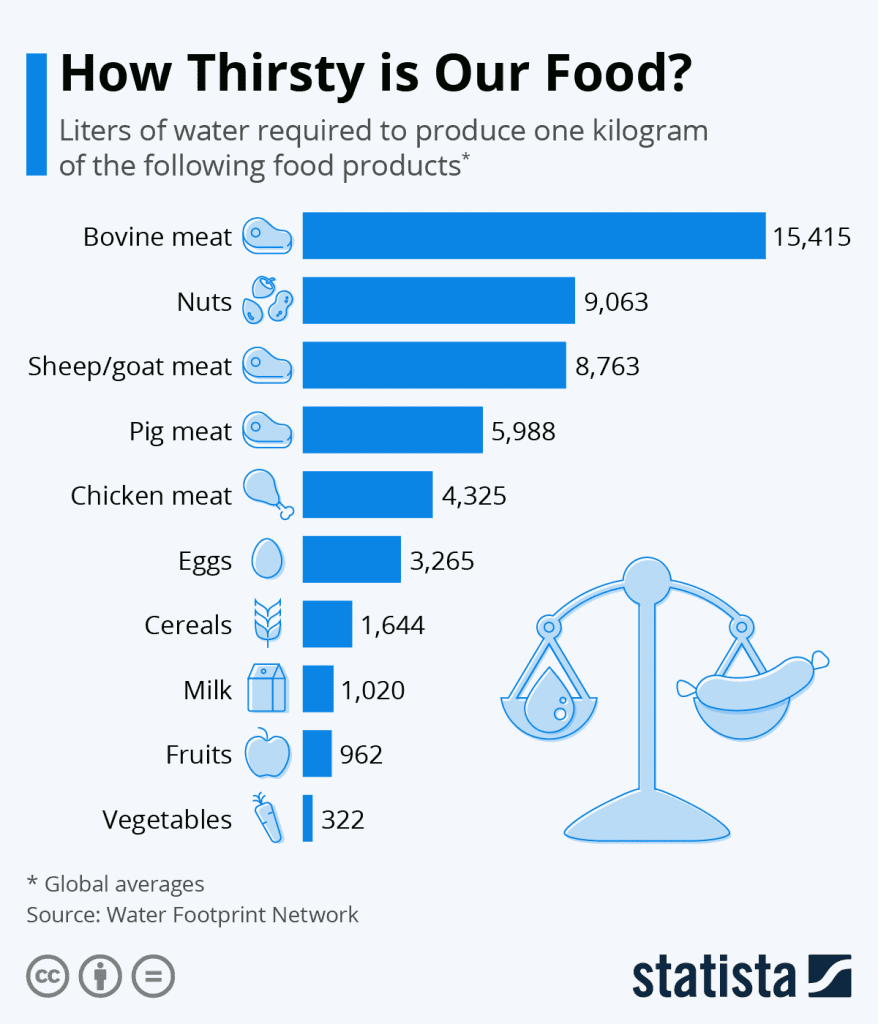In recent years, there has been a growing emphasis on living a more sustainable lifestyle, and for good reason. With the looming threat of climate change and the urgent need to reduce our carbon emissions, it has become more important than ever to look at the choices we make in our everyday lives that contribute to our carbon footprint. While many of us are aware of the impact of transportation and energy consumption on the environment, our diet is another significant factor that often goes overlooked. In fact, studies have shown that the food we eat can account for up to a quarter of our overall carbon footprint. This has led to the rise of eco-friendly eating, a movement that focuses on making dietary choices that not only benefit our health but also the planet. In this article, we will explore the concept of eco-friendly eating and how our food choices can have a significant impact on our carbon footprint. From sourcing to preparation and consumption, we will delve into the various ways in which our diet can contribute to a more sustainable future. Get ready to discover the power of eco-friendly eating and how it can make a positive difference for our planet.
Understanding the link between diet and carbon emissions
When it comes to reducing our environmental impact, it’s important to consider all aspects of our daily lives, including our dietary choices. Explaining how individual dietary choices contribute to personal carbon footprints and how adopting a plant-based diet can significantly reduce one’s environmental impact. The production, transportation, and processing of food all contribute to greenhouse gas emissions, with animal-based products typically having a higher carbon footprint than plant-based alternatives. Livestock farming, for example, is a major source of methane, a potent greenhouse gas. Additionally, deforestation for livestock grazing and feed production further exacerbates carbon emissions. By choosing a plant-based diet, individuals can significantly reduce their carbon footprint by minimizing their contribution to these processes. Plant-based diets not only offer a sustainable solution to reduce carbon emissions but also provide numerous health benefits. By understanding the link between diet and carbon emissions, individuals can make informed choices that contribute to a more sustainable future.

Meat, dairy, and your footprint
It’s no secret that the consumption of meat and dairy products has a significant impact on our carbon footprint. The production of these animal-based products requires large amounts of resources, including land, water, and feed. The process of raising livestock for meat and dairy also contributes to deforestation, as vast areas of land are cleared to make space for grazing and feed crops. Additionally, the methane emissions from cattle and other ruminant animals are a major contributor to greenhouse gas emissions. Choosing to reduce or eliminate meat and dairy from our diets can have a profound effect on our individual carbon footprints. By adopting a plant-based diet, we can significantly reduce our environmental impact and contribute to a more sustainable future.
The benefits of going plant-based
Explaining how individual dietary choices contribute to personal carbon footprints and how adopting a plant-based diet can significantly reduce one’s environmental impact. In addition to the positive effects on our carbon footprint, going plant-based offers a multitude of benefits for both our health and the well-being of animals. Plant-based diets are rich in fiber, vitamins, and minerals, providing a wide range of nutrients that support optimal health. Research has shown that individuals who follow a plant-based diet tend to have lower rates of obesity, heart disease, and certain types of cancer. By eliminating or reducing the consumption of animal products, we also contribute to reducing animal cruelty and promoting ethical treatment of animals. Furthermore, a plant-based diet can be more cost-effective and sustainable, as plant-based foods are often more affordable and require fewer resources to produce. Overall, adopting a plant-based diet not only helps to minimize our carbon footprint, but also provides numerous benefits for our health and the welfare of animals.

Replacing meat with plant-based alternatives
Replacing meat with plant-based alternatives is a practical and effective way to reduce our carbon footprint and contribute to a more sustainable future. Plant-based alternatives, such as tofu, tempeh, and seitan, offer a comparable taste and texture to meat, making them a suitable replacement in various dishes. Not only do plant-based alternatives require fewer resources to produce, but they also emit significantly fewer greenhouse gases compared to the livestock industry. According to research, a plant-based diet can reduce an individual’s carbon footprint by up to 50%, making it a powerful tool in combatting climate change. By incorporating more plant-based alternatives into our diets, we can make a positive impact on the environment and promote a healthier and more ethical way of eating.
The role of transportation in food
Transportation plays a crucial role in the journey of food from farm to plate, and it significantly contributes to an individual’s carbon footprint. Explaining how individual dietary choices contribute to personal carbon footprints and how adopting a plant-based diet can significantly reduce one’s environmental impact. The transportation of food involves various stages, including harvesting, packaging, and distribution, all of which require energy and produce greenhouse gas emissions. When food travels long distances, especially across borders, it contributes to higher carbon emissions due to the use of fossil fuels in vehicles and airplanes. By opting for locally sourced and seasonal produce, individuals can reduce the distance that food needs to travel, thereby minimizing the environmental impact of transportation. Additionally, supporting local farmers and community-supported agriculture initiatives promotes a more sustainable food system and reduces reliance on long-haul transportation.
Why local and seasonal matter
Supporting local and seasonal food is not only beneficial for the environment but also for personal health and the local economy. When we choose local produce, we support nearby farmers and businesses, contributing to a more resilient and sustainable food system. Seasonal eating allows us to enjoy foods at their peak freshness and nutritional value, as these foods are harvested and consumed when they naturally occur in our region. By embracing local and seasonal eating, we can reduce the need for extensive packaging and refrigeration, further reducing our carbon footprint. Additionally, consuming foods that are in season ensures a diverse and varied diet, as different fruits and vegetables thrive during different times of the year. So, by making conscious choices about the food we consume, we can have a positive impact on our environment, our health, and our local communities.

Reducing food waste, reducing emissions
Explaining how individual dietary choices contribute to personal carbon footprints and how adopting a plant-based diet can significantly reduce one’s environmental impact. One often overlooked aspect of eco-friendly eating is the reduction of food waste, which plays a significant role in carbon emissions. When we waste food, we also waste the resources that went into producing it, including water, land, and energy. Additionally, as food decomposes in landfills, it releases harmful greenhouse gases, contributing to climate change. By being mindful of our food consumption and implementing strategies to reduce waste, such as meal planning, proper storage, and utilizing leftovers creatively, we can minimize our contribution to emissions. Embracing a plant-based diet, which focuses on fruits, vegetables, grains, and legumes, further enhances our efforts. Plant-based diets have lower carbon footprints compared to diets that rely heavily on animal products, as the production of meat and dairy requires more resources and generates more emissions. By making conscious choices and embracing a plant-based diet, we can make a significant impact on reducing emissions and promoting a more sustainable future.
How small changes make big impacts
By making small changes to our daily habits and choices, we can create significant impacts on our environment. Whether it’s opting for reusable bags instead of single-use plastic ones, choosing to walk or bike instead of driving short distances, or reducing our energy consumption by turning off lights and unplugging electronics when not in use, these seemingly minor adjustments can add up to substantial benefits for the planet. It’s important to remember that every individual action contributes to the larger collective effort in mitigating climate change and preserving our natural resources. By being mindful of the environmental consequences of our actions and making conscious choices, we can make a real difference in creating a more sustainable future for generations to come.
The impact of water usage
Water usage is another critical factor to consider when examining our carbon footprint and environmental impact. Explaining how individual dietary choices contribute to personal carbon footprints and how adopting a plant-based diet can significantly reduce one’s environmental impact. The production of meat and dairy products requires extensive water resources, from the irrigation of crops for animal feed to the water needed for livestock hydration and cleaning. On the other hand, plant-based diets tend to be more water-efficient, as the cultivation of fruits, vegetables, grains, and legumes generally requires less water. By reducing our consumption of animal products and embracing plant-based alternatives, we can minimize the strain on water resources and contribute to the preservation of this vital and finite resource. Additionally, raising awareness about the impact of water usage can encourage individuals to make more sustainable choices and promote responsible water management practices in various industries.

Sustainable eating for the planet
Adopting a sustainable eating pattern is essential for mitigating the environmental impact of our diets. Making conscious choices about what we consume can significantly reduce our carbon footprint. Plant-based diets have emerged as a promising solution in this regard. By opting for plant-based alternatives over meat and dairy products, individuals can greatly decrease their contribution to greenhouse gas emissions, deforestation, and water pollution. The production of animal products is resource-intensive, requiring vast amounts of land, water, and energy. In contrast, plant-based foods have a significantly lower environmental footprint as they require fewer resources to produce. By embracing sustainable eating practices and shifting towards a plant-based diet, individuals can play an active role in preserving the planet for future generations.
In conclusion, our food choices have a significant impact on the environment, especially when it comes to our carbon footprint. By making small changes to our diets and choosing more eco-friendly options, we can reduce our impact on the planet and contribute to a healthier, more sustainable future. Let us all strive to make mindful and informed choices when it comes to our meals, for the sake of both our own health and the health of the planet. Together, we can create a more sustainable and eco-friendly food system.

FAQ
How does eating locally sourced produce and meats reduce your carbon footprint compared to consuming imported foods?
Eating locally sourced produce and meats reduces your carbon footprint compared to consuming imported foods because local food travels shorter distances to reach you, requiring less fuel for transportation. This reduces greenhouse gas emissions associated with long-distance shipping and refrigeration. Additionally, local farmers often use sustainable practices that minimize environmental impact, further reducing carbon emissions. By supporting local food systems, you are lowering the overall energy consumption and emissions associated with your food consumption, thus contributing to a more environmentally friendly and sustainable food supply chain.
What are some eco-friendly protein sources that have a lower environmental impact than traditional meat products?
Plant-based proteins such as legumes (beans, lentils), tofu, tempeh, quinoa, and nuts are great eco-friendly alternatives to traditional meat products. These sources require less land, water, and produce fewer greenhouse gas emissions compared to raising livestock for meat. Additionally, algae-based proteins and insect-based proteins are emerging as sustainable options with lower environmental impacts. Transitioning towards these protein sources can help reduce the strain on the environment caused by animal agriculture.
How does reducing food waste play a role in promoting sustainable eating habits and lowering your carbon footprint?
Reducing food waste is crucial for promoting sustainable eating habits and lowering your carbon footprint because wasted food not only represents a waste of resources and energy used in production, but also contributes to methane emissions when it decomposes in landfills. By reducing food waste, we can help conserve water, energy, and resources used in food production while also minimizing greenhouse gas emissions. This, in turn, helps create a more sustainable food system and reduces the overall environmental impact of our food consumption habits.
What are some ways to incorporate more plant-based meals into your diet to reduce greenhouse gas emissions associated with animal agriculture?
To incorporate more plant-based meals into your diet and reduce greenhouse gas emissions from animal agriculture, you can start by gradually replacing meat with plant-based proteins like legumes, tofu, and tempeh. Incorporate more fruits, vegetables, and whole grains into your meals to increase variety and nutrition. Experiment with plant-based recipes and try new ingredients to keep meals interesting and flavorful. Reduce dairy consumption by switching to plant-based alternatives like almond or oat milk. Embrace meatless Monday or other meat-free days to gradually reduce reliance on animal products and contribute to a more sustainable food system.
How can choosing organic and sustainably grown foods contribute to a more environmentally friendly diet and lifestyle?
Choosing organic and sustainably grown foods can contribute to a more environmentally friendly diet and lifestyle by reducing the use of harmful synthetic pesticides and chemicals, promoting soil health and biodiversity, conserving water and energy, and supporting local farmers who use eco-friendly practices. These foods also often have lower carbon footprints due to decreased transportation and processing requirements, leading to a more sustainable food system that protects natural resources and reduces environmental impact. By making these choices, individuals can help support a healthier planet and contribute to a more sustainable future.



